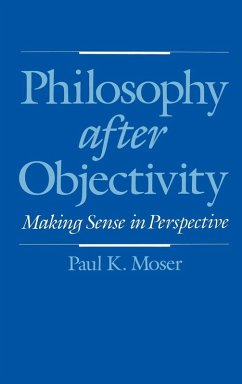Since the beginning of philosophy, philosophers have sought objective knowledge: knowledge of things whose existence does not depend on one's conceiving of them. Philosophy After Objectivity uses lessons from debates over objective knowledge to characterize the kinds of reasons pertinent to philosophical and other theoretical views. It argues that we cannot meet skeptics' typical demands for non-question begging support for claims to objective truth, and that therefore we should not regard our supporting reasons as resistant to skeptical challenges. One key lesson in this volume is that constructive, explanatory approach to philosophy must change the subject from skeptic-resistant reasons to perspectival reasons arising from variable semantic commitments and instrumental, purpose-relative considerations. The book lays foundations for such a reorientation of philosophy creating Fundamental methodological issues in ontology, epistemology, the theory of meaning, the philosophy of mind, and the theory of practical rationality. Philosophy After Objectivity explains how certain perennial debates in philosophy rest not on genuine disagreement, but on conceptual diversity: talk about different matters. The book shows how acknowledgment of conceptual diversity can resolve a range of traditional disputes in philosophy, and also explains why philosophers need not anchor their discipline in the physicalism of the natural sciences.
Hinweis: Dieser Artikel kann nur an eine deutsche Lieferadresse ausgeliefert werden.
Hinweis: Dieser Artikel kann nur an eine deutsche Lieferadresse ausgeliefert werden.








